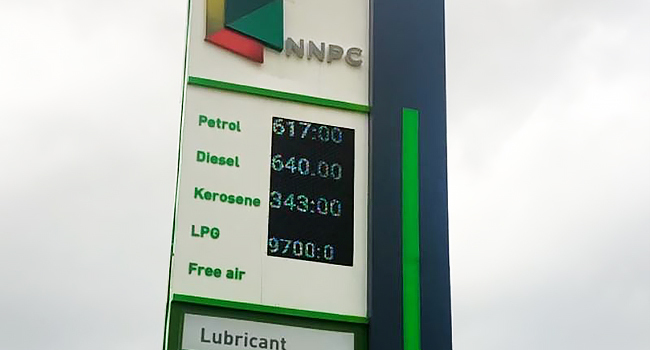The Federal Government of Nigeria has solidified its commitment to the Naira-for-crude oil initiative, designating it as a cornerstone of its long-term economic reform strategy, rather than a temporary measure. This initiative mandates that all domestic crude oil and refined petroleum product transactions be conducted in Naira, the national currency. The government’s objective is to fortify the Naira’s value, reduce reliance on foreign exchange, and promote economic stability and self-reliance. This policy signifies a fundamental shift in Nigeria’s oil trading practices and has significant implications for the nation’s economic future.
The Naira-for-crude oil initiative is a multi-faceted strategy designed to address several interconnected economic challenges. Primarily, it aims to bolster the Naira’s exchange rate, which has been under pressure from fluctuations in global oil prices and demand for foreign currencies. By requiring domestic oil transactions to be conducted in Naira, the government seeks to create increased demand for the local currency, thereby potentially stabilizing and strengthening its value. This move is also expected to reduce the demand for foreign exchange, which is often needed to facilitate international oil trades, thus easing pressure on Nigeria’s foreign reserves.
This initiative represents a significant step towards greater economic sovereignty for Nigeria. By prioritizing the use of its national currency in a crucial sector like oil, the country aims to reduce its dependence on foreign currencies and exert more control over its economic destiny. The policy seeks to foster a more self-reliant economy, less susceptible to external shocks and fluctuations in global markets. It is a move towards building a more robust and independent economic framework that prioritizes national interests.
Furthermore, the Naira-for-crude oil initiative is intrinsically linked to the government’s efforts to enhance local refining capacity. By mandating domestic transactions in Naira, the initiative incentivizes investment in and development of domestic refineries. This is part of a broader strategy to reduce Nigeria’s dependence on imported refined petroleum products and ensure a more reliable and secure domestic supply of fuel. Increased local refining capacity would not only contribute to energy security but also create jobs and stimulate economic growth within the country.
The initiative is also projected to improve Nigeria’s overall energy security. By prioritizing domestic refining and reducing reliance on imported fuel, the nation aims to insulate itself from the volatility of international oil markets and potential disruptions to global supply chains. This focus on domestic capacity building strengthens the nation’s ability to meet its own energy needs and reduces its vulnerability to external factors that could affect fuel availability and prices. A secure and reliable energy supply is essential for sustainable economic growth and development.
In conclusion, the Naira-for-crude oil initiative is a strategic policy decision by the Nigerian government aimed at achieving long-term economic stability, self-sufficiency, and growth. It represents a shift away from traditional oil trading practices and embraces a more inward-focused approach. By mandating the use of the Naira in domestic oil transactions, the government seeks to strengthen the national currency, reduce pressure on foreign exchange, promote local refining capacity, and enhance energy security. This initiative forms a crucial part of Nigeria’s broader economic reform agenda and is expected to play a significant role in shaping the country’s economic future. It is a bold step towards greater economic sovereignty and signals the government’s commitment to building a more resilient and independent economy. This policy will likely be closely monitored by international markets and could have significant implications for Nigeria’s position in the global oil trade.


